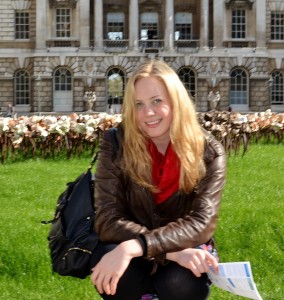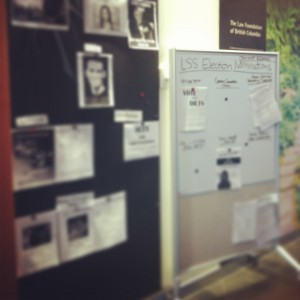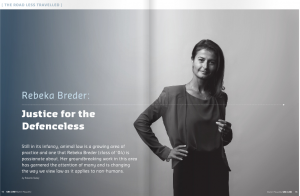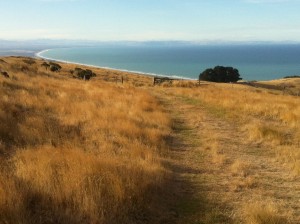 Graduating student Lisa Jørgensen is a recipient of the 2012/2013 Premier Undergraduate Scholarship and Wesbrook Scholarship. Thirteen students across the university were selected this year for what is UBC’s most prestigious student award. The award is given to a senior student with outstanding records in the areas of academics, participation in sports, leadership, and involvement in student and community activities. We asked Lisa a few questions about her achievements and experience at UBC Law.
Graduating student Lisa Jørgensen is a recipient of the 2012/2013 Premier Undergraduate Scholarship and Wesbrook Scholarship. Thirteen students across the university were selected this year for what is UBC’s most prestigious student award. The award is given to a senior student with outstanding records in the areas of academics, participation in sports, leadership, and involvement in student and community activities. We asked Lisa a few questions about her achievements and experience at UBC Law.
Why did you choose to go to law school?
I’ve always wanted to be a lawyer. I debated competitively throughout my undergrad and absolutely love oral argument. But after finishing my BAH in Political Science I wasn’t so sure. I decided to take a couple years off to work and think about what I wanted to do with my life. That eventually lead to me pursuing teaching English overseas. I lived in Mexico for a couple months and eventually spent a year teaching in Cairo, Egypt. Many of my friends worked with refugee groups in Egypt and I heard their stories/did some volunteer work/spent a considerable amount of time getting to know the community through my students and their families. My time in Egypt, just months before the revolution, showed me the disgusting things that can transpire in the absence of a just legal system. My experiences renewed my dedication to going to law school – I wrote the LSAT and applied while living Cairo. It was the best decision I ever made.
How did you juggle school and other activities?
For me it was all about setting priorities and staying organized. School was always my top priority. I spent quite a lot of time at the beginning of each semester getting a sense of which courses required more or less time and scheduled my time accordingly. In first year, when competitive debating took me overseas for 4 weeks over the course of the year, I did a lot of reading in advance and scheduled meetings with my professors to make sure I understood everything.
I didn’t find it hard to fit in outside activities I care about. I think that it’s important to maintain who you are and do things that keep you happy and sane during law school. Being able to focus on things other than school that I enjoy kept me relaxed and focused, whether it was something law-centric like volunteering at a nonprofit, going to the gym, or reading bad fiction. For me, law school wasn’t just about school; a big part of it was getting the chance to take on challenging and exciting non-academic roles that let me apply my studies in a practical setting. Ultimately, I found that I was able to make time for all the things I cared about – friends, family, my partner, school, volunteer work, etc. by staying organized and having a clear sense of what mattered most to me.
What are your plans for after graduation?
This summer I will be working for the Crown Law Office – Criminal in Toronto and writing the bar exam in Ontario. In September I am starting a clerkship at the Ontario Court of Appeal. I am not entirely sure what I will do after my clerkship, but I hope to return to the firm I summered at to pursue a career in civil litigation.
Can you describe your law school experience?
Law school has been an amazing experience. I came to law school with a sense that law was what I wanted to do, but was otherwise pretty directionless. Law school has given me a clear set of priorities and opened up a career that has me genuinely excited. The professors at UBC are fantastic. I feel incredibly lucky to have had the opportunity to learn from them over the past three years. I’ve also been blown away by the support I’ve received to pursue my own interests and goals from everyone at UBC Law. I am excited to start my career, but I will miss being at UBC Law.



